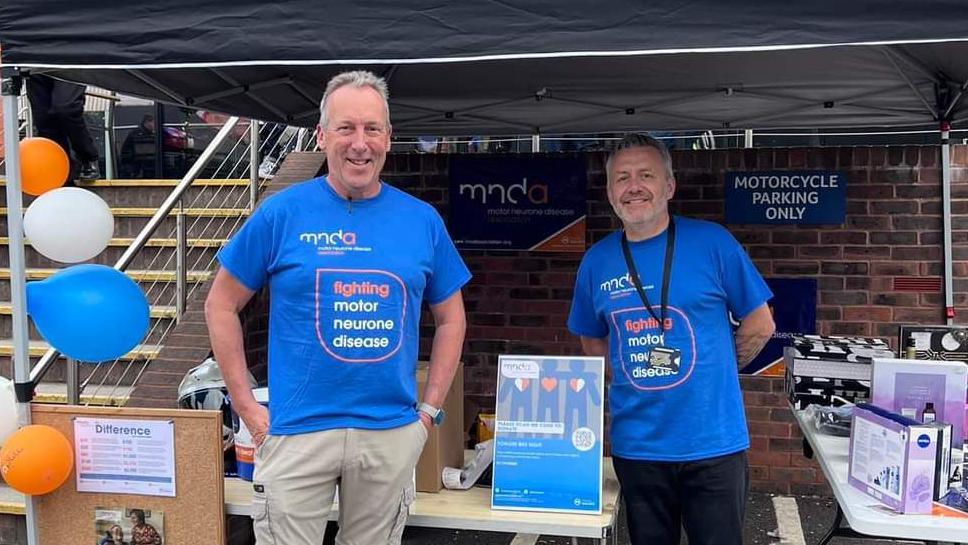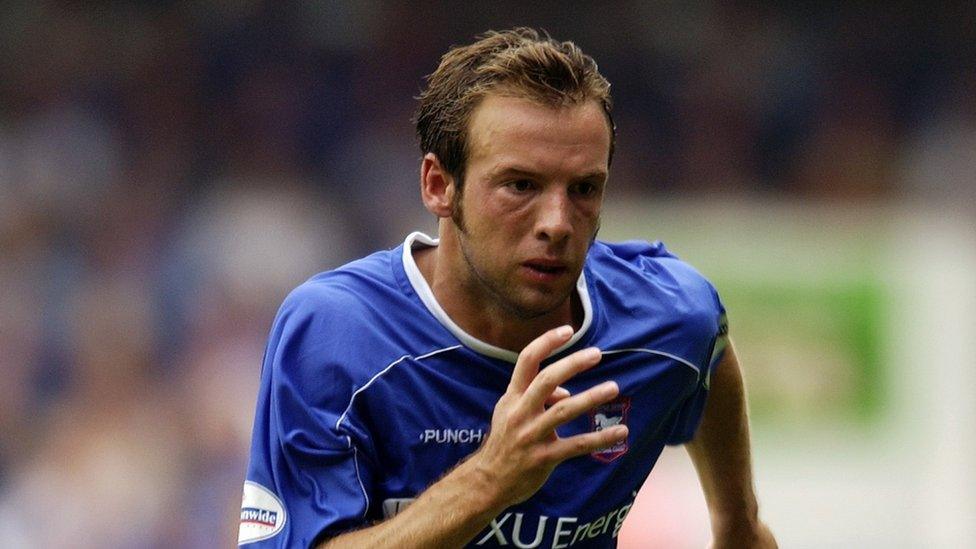'I don't understand how MND works even now'

Jamie Cox, (right) has been supported by his employers to raise awareness about MND
- Published
A man who was diagnosed with motor neurone dysfunction (MND) five years ago said he is still struggling to understand the condition.
After being in good health for most his life, Jamie Cox, from Bristol, started noticing his legs "felt like jelly" and his balance "kept feeling off".
The 53-year-old was then diagnosed with the degenerative condition in 2019, and now has difficulties walking.
To raise awareness about MND and help other people with the condition, his employer, motorbike dealiership Fowlers, dedicated its Bristol Bike Night to the Motor Neurone Disease Association. They raised £4,100 for the charity.
“I still try to understand how the disease works even now, but it’s the upper motor neurons in the brain malfunctioning so a very complex non-curable condition,” Mr Cox said.
"I have to live with the pain and the stiffness. I have to tell my legs if I want to move the right one or the left," he said.
"If I turn too fast or move too quickly, I often fall over. I think of myself as lucky though.
"It only impacts my lower body. Its cousin - as I call it - motor neurone disease can impact someone's speech and their breathing."
Mr Cox regularly attends appointments at Southmead neurology department, where experts are "trying to slow down" the progression of his movement disability.

Hundreds of people attended the event earlier this month
Mr Cox has thanked everyone who attended June's Bristol Bike Night, which saw hundreds of riders come together to enjoy music and food at Fowlers, based on Bath Road.
"We had a good turn out," he said.
"I wanted to do my bit to help the charity and raise awareness."
What is Motor Neurone Disease?
It most typically affects people over 50, but adults of any age can be affected
It affects cells in the brain and spinal cord (motor neurones) that allow us to move, speak, swallow and breathe by sending commands from the brain to the muscles that carry out these functions, meaning the cells stop working over time
There is no cure, but there are treatments to help reduce the impact it has and some people live with it for many years
Follow BBC Bristol on Facebook, external, X, external and Instagram, external. Send your story ideas to us on email or via WhatsApp on 0800 313 4630.
Related topics
- Published26 October 2023

- Attribution
- Published21 June 2024
